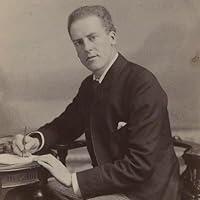
Karl Pearson
Über den Autor
Karl Pearson was a British mathematician, statistician, and eugenicist, known for laying the groundwork for the fields of statistics and biometrics. He was one of the first to apply statistical methods to the social sciences and biological fields, significantly enhancing the rigor of empirical research. His work contributed to the development of the Pearson correlation coefficient, a measure of the linear correlation between two variables, which remains widely used in statistics today.
Pearson's influence extended beyond pure statistics into the realms of sociology and genetics, where he utilized statistical analysis to support his views on heredity and evolution. He founded the discipline of biometrics and was a prominent figure in the establishment of the statistical society, which later became known as the Royal Statistical Society. His legacy is marked by a commitment to quantitative analysis and a belief in the power of statistics to uncover truths in various domains, from biology to social science.